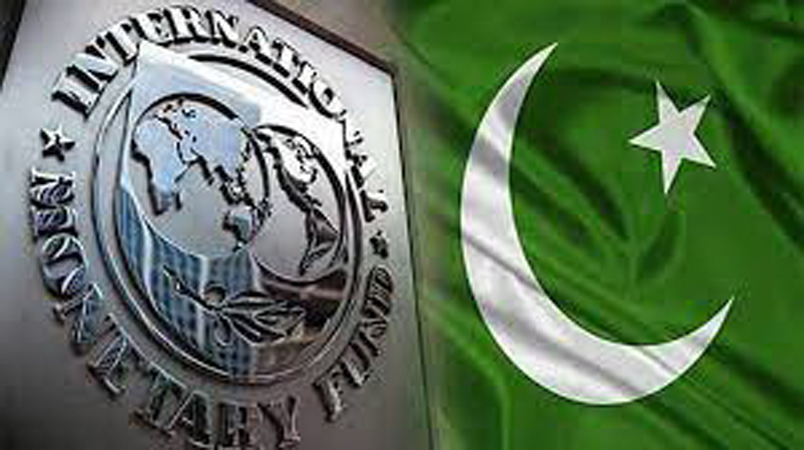The International Monetary Fund (IMF) on Wednesday approved a $7 billion new bailout package after Pakistan promised to overhaul its agriculture income tax, transfer some fiscal responsibilities to provinces and had to take the most expensive loan in the nation’s history. The Executive Board of the IMF approved the 37-month Extended Fund Facility totaling $7 billion. It also authorised the release of first loan tranche of nearly $1.1 billion immediately. It is the 25th IMF programme that Pakistan has obtained since 1958 and 6th EFF. The new bailout package targets achieving the macroeconomic stability by consolidating public finances, rebuild foreign exchange reserves, reduce fiscal risks from state-owned enterprises, and improving the business environment to encourage growth led by the private sector. To qualify for the programme, the government imposed Rs1.4 trillion to Rs1.8 trillion in additional taxes, increased electricity prices up to 51% and committed to bring transparency in the affairs of the Sovereign Wealth Fund. The government also took Pakistan’s history’s most expensive loan of $600 million to win a board meeting date from the IMF. Unlike in the past, when the provincial budgets were out of the purview of the IMF, the new programme is also expanded to the provincial budgets and their revenues. There are nearly one-dozen IMF conditions that directly impact the provinces under the new programme. The federal and four provincial governments would sign a new National Fiscal Pact by next Tuesday to transfer the responsibilities of health, education, social safety net and road infrastructure projects to the provincial governments. All the four provincial governments would align their agriculture income tax rates to the federal personal and corporate income tax rates by amending their laws by October 30. As a result, the agriculture income tax rate would increase from 12-15% to up to 45% from January next year. All the provincial governments would not give any further subsidies on electricity and gas and these governments would not establish any new Special Economic Zones or Export Processing Zone. The federal government would not be entitled to have any new such economic zone and would end the tax incentives of the existing zones by 2035. According to another condition, Pakistan would show a primary budget surplus of 4.2% of the Gross Domestic Product during the three-year programme period. The primary budget surplus is calculated after excluding interest payments. Under the IMF programme, a primary surplus equal to 1% of GDP will have to be shown in this fiscal year and about 3.2% over the next two years to put the debt-to-GDP ratio on a sustainable declining path. In case of tax shortfall, the government has committed to bringing a mini-budget that would result into increasing tax rates on imports, contractors, professional service providers and on fertilizer. For this fiscal year, Pakistan will be bound to keep the spending on defence and subsidies at the previous fiscal year’s level in terms of the size of the economy. However, the design of the programme has not completely addressed the issue of debt unsustainability and is built around the strategy of rolling over the maturing external debt during the programme period. Pakistan has committed that it would not repay the $12.7 billion debt to Saudi Arabia, China, the United Arab Emirates and Kuwait during the programme period. Earlier, the Asian Development Bank projected a moderate growth rate of 2.8% for Pakistan in FY25, driven by the 37-month EFF agreement. The IMF-backed reform agenda is expected to boost Pakistan’s economic growth in fiscal year 2025 (FY25), according to the ADB’s Outlook September 2024 report. The ADB reported that growth in Pakistan rebounded to 2.4% in FY2024, while inflation was lower than anticipated. Inflation has seen a significant decline, averaging 23.4% in FY 2024, down from 29.2% the previous year. This economic improvement was attributed to fiscal discipline, a market-driven exchange rate, and enhanced efficiency in the energy sector. However, the ADB raised concerns about higher personal income tax rates and the government’s spending restrictions, which could limit both private and public consumption in FY25. Additionally, growth in the agricultural sector is expected to slow due to increased gas prices and reduced fertiliser subsidies. The report noted that public debt is expected to decline as a percentage of GDP, though interest payments have reached nearly 60% of fiscal revenues. Inflation in Pakistan is projected to moderate to 15% in FY25, supported by tighter monetary policies and stable global commodity prices. The ADB warned that Pakistan’s economic outlook remains vulnerable to shortfalls in external financing and potential lapses in policy implementation, which could lead to increased pressure on the exchange rate and worsen debt vulnerabilities. The report also noted that external risks, including geopolitical tensions, higher food and oil prices, and tighter global financial conditions, could impact Pakistan’s macroeconomic stability. However, improved global financing conditions and lower international food and fuel prices would help reduce fiscal and external vulnerabilities. Looking ahead, the Asian Development Bank (ADB) forecasts that inflation will continue to fall, reaching as low as 15% by 2025. This reduction is expected to be driven by stable monetary policies, improvements in the exchange rate, and the stabilization of global food prices. Separately, the Federal Board of Revenue (FBR) on Wednesday reacted to the ‘rumours’ of introducing a mini budget in the current fiscal year. In an informal conversation with journalists, Hamid Ateeq Sarwar, the FBR Membesr Inland Revenue (IR) Policy, denied the rumors of introducing a mini budget. “There would be no need to introduce a mini-budget from October 1,” he added.
Subscribe
Login
0 Comments





